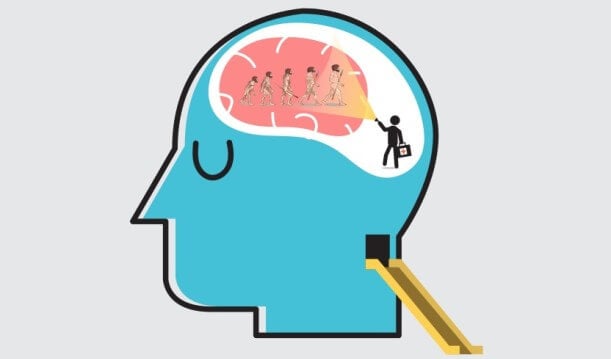Evolutionary psychology is a relatively new field that has emerged as a response to the limitations of traditional approaches to psychology. Evolutionary psychologists study the ways in which our behavior and cognitive abilities have evolved to help our ancestors survive and reproduce in their environment, as well as how these mechanisms interact with cultural and environmental factors to shape behavior. In this article, we will explore the key concepts and ideas of evolutionary psychology, as well as their contributions to our understanding of human behavior.
Contents
- 1 Who are Evolutionary Psychologists?
- 2 Techniques Used By Evolutionary Psychologists
- 3 Reasons To Visit Evolutionary Psychologists
- 4 Sources For Finding Evolutionary Psychologists
- 5 Tips To Keep In Mind While Finding Evolutionary Psychologists
- 6 Pros and Cons of Visiting Evolutionary Psychologists
- 7 Conclusion
Who are Evolutionary Psychologists?

Evolutionary psychologists are researchers and practitioners who specialize in the field of evolutionary psychology. They apply the principles of evolutionary theory to the study of human behavior, cognition, and emotions.
Evolutionary psychologists come from a variety of academic backgrounds, including psychology, anthropology, biology, and philosophy. They use a range of research methods, including experimental studies, surveys, and observational research, to investigate how our behavior and cognitive abilities have evolved over time and how they interact with environmental and cultural factors.
The ultimate goal of evolutionary psychology is to gain a better understanding of the origins and functions of human behavior, as well as to identify ways in which this knowledge can be applied to improve our lives.
Techniques Used By Evolutionary Psychologists
Evolutionary psychologists use a variety of techniques to study human behavior and cognition through the lens of evolutionary theory. Some of the most common techniques used by evolutionary psychologists include:
- Comparative research: Evolutionary psychologists often study the behavior and cognition of humans in comparison to other animals. By comparing the behaviors of humans and other animals, they can identify common patterns and differences that may shed light on the evolutionary origins of human behavior.
- Cross-cultural research: Evolutionary psychologists also study the behavior and cognition of people from different cultures around the world. By comparing the behaviors of people from different cultures, they can identify similarities and differences that may be shaped by cultural and environmental factors.
- Experimental research: Evolutionary psychologists conduct experimental research to test hypotheses about the evolutionary origins of behavior and cognition. These experiments often involve manipulating variables such as social norms, environmental conditions, and genetic factors to see how they affect behavior.
- Neuroimaging: Evolutionary psychologists also use neuroimaging techniques such as MRI and PET scans to study the brain and its functioning. By studying brain activity in response to different stimuli, they can identify neural circuits that may be involved in specific behaviors or cognitive processes.
- Survey research: Evolutionary psychologists also use surveys and questionnaires to collect data on behavior and cognition. These surveys often ask participants about their attitudes, preferences, and behaviors, and can provide insights into how evolutionary factors may influence these aspects of human psychology.
- Observational research: Finally, evolutionary psychologists conduct observational research to study behavior in natural settings. This involves observing people in their natural environment and recording their behavior, social interactions, and other relevant factors. This type of research can provide valuable insights into the evolutionary origins of behavior and cognition, as well as how these factors interact with cultural and environmental factors.
Reasons To Visit Evolutionary Psychologists

There are several reasons why someone might visit an evolutionary psychologist. Some of the most common reasons include:
- Understanding the evolutionary origins of behavior: Evolutionary psychologists can help individuals understand why they behave in certain ways by examining how their behavior may have been shaped by evolutionary processes. This can be especially helpful for individuals struggling with maladaptive behaviors or thoughts.
- Improving relationships: Evolutionary psychologists can provide insights into how human relationships have evolved over time and how this may impact our behavior in social situations. They can also provide guidance on how to improve relationships and communication with others.
- Exploring the roots of mental health issues: Evolutionary psychologists can help individuals understand the evolutionary origins of mental health issues such as anxiety, depression, and addiction. By examining how these issues may have evolved as adaptive responses to environmental challenges, they can provide insights into how to address these issues.
- Enhancing personal development: Evolutionary psychologists can help individuals understand their unique strengths and weaknesses based on their evolutionary history. By examining how different traits may have evolved to help individuals survive and reproduce, they can provide guidance on how to leverage these traits to achieve personal goals.
- Optimizing workplace performance: Evolutionary psychologists can help individuals understand how evolutionary factors may impact workplace performance, including factors such as motivation, leadership, and teamwork. They can provide insights into how to optimize these factors to achieve greater success in the workplace.
Overall, evolutionary psychologists can provide a unique perspective on human behavior and cognition that can be helpful in a variety of personal and professional contexts.
Sources For Finding Evolutionary Psychologists

- Professional organizations: The International Society for Evolutionary Psychology and the Human Behavior and Evolution Society are two organizations that represent professionals in the field of evolutionary psychology. These organizations have membership directories that can help you locate an evolutionary psychologist in your area.
- Online directories: Websites such as Mantracare and Therapymantra have online directories of therapists and psychologists that you can search by location and specialty. Many of these directories include evolutionary psychologists.
- Referrals from other professionals: If you are already seeing a mental health professional, they may be able to refer you to an evolutionary psychologist or another specialist who can help you with your specific needs.
- University departments: Many universities have psychology departments that specialize in evolutionary psychology. You can check their websites for information on faculty members who specialize in this area and may be available for consultations.
- Online search engines: You can also use search engines such as Google to find evolutionary psychologists in your area. Be sure to include your location and specific keywords such as “evolutionary psychologist” or “evolutionary psychology” to narrow down your search results.
It’s important to note that not all mental health professionals may identify as evolutionary psychologists, but may still incorporate evolutionary theory into their practice. Be sure to ask about their training and experience in this area before scheduling an appointment.
Tips To Keep In Mind While Finding Evolutionary Psychologists
- Research the therapist’s credentials: Make sure the therapist has a license and has appropriate training and experience in the field of psychology. Look for a therapist who has specialized training in evolutionary psychology or who has published research in this area.
- Read reviews and testimonials: Look for reviews and testimonials from other patients who have worked with the therapist. This can give you an idea of their style and approach to therapy.
- Check with your insurance provider: If you are using insurance to pay for therapy, make sure the therapist is in your network and accepts your insurance plan.
- Consider the therapist’s approach: Different therapists may have different approaches to therapy, so it’s important to find someone whose approach aligns with your needs and preferences.
- Ask about fees and schedule: Make sure you understand the therapist’s fees and scheduling policies before you commit to working with them. Ask about their availability and whether they offer flexible scheduling options.
- Consider your comfort level: It’s important to feel comfortable and safe with your therapist. Consider scheduling a consultation or initial appointment to get a feel for their approach and whether you feel comfortable working with them.
Pros and Cons of Visiting Evolutionary Psychologists

There are several pros and cons to visiting an evolutionary psychologist. Here are some to consider:
Pros
- Unique perspective: Evolutionary psychologists bring a unique perspective to the study of human behavior and cognition. By examining how evolutionary processes have shaped our psychology, they can provide insights into why we behave the way we do and how to optimize our behavior for greater success and fulfillment.
- Evidence-based: Evolutionary psychology is based on scientific research and empirical evidence, which can provide a strong foundation for understanding human behavior.
- Personalized approach: Evolutionary psychologists often take a personalized approach to therapy, tailoring their approach to the individual needs and preferences of their clients.
- Holistic approach: Evolutionary psychologists often take a holistic approach to mental health, examining the interplay between biology, environment, and culture in shaping behavior and cognition.
- Can address a wide range of issues: Evolutionary psychology can be applied to a wide range of issues, from mental health concerns to workplace performance to personal development.
Cons
- Controversial field: Evolutionary psychology is a relatively new field and is still considered controversial by some in the scientific community. Critics argue that it oversimplifies complex human behavior and ignores the influence of cultural and environmental factors.
- Limited evidence: Some of the claims made by evolutionary psychologists are based on limited evidence, and more research is needed to validate their hypotheses.
- Not all therapists specialize in evolutionary psychology: Not all therapists may specialize in evolutionary psychology, and it may take time and effort to find a therapist who can provide this type of therapy.
- May not be covered by insurance: Some insurance plans may not cover therapy with an evolutionary psychologist, which can make it more expensive for patients.
- Personal biases: Like any therapist, an evolutionary psychologist may have personal biases or blind spots that can influence their approach to therapy.
Overall, visiting an evolutionary psychologist can be a valuable experience for those looking to gain a deeper understanding of their behavior and cognitive processes.
Conclusion
In conclusion, evolutionary psychology is a fascinating and interdisciplinary field that seeks to understand human behavior and cognition through the lens of evolutionary theory. Evolutionary psychologists use a range of techniques, from comparative research to neuroimaging, to study how our behavior and cognitive abilities have evolved over time and how they interact with cultural and environmental factors.
When considering visiting an evolutionary psychologist, it’s important to weigh the potential pros and cons and do your research to find a therapist who can provide the best care for your individual needs.
For more information, please contact MantraCare. A psychologist is a professional who specializes in the study of human behavior and mental processes. If you have any queries regarding Online therapists experienced therapists at MantraCare can help: Book a trial therapy session.


